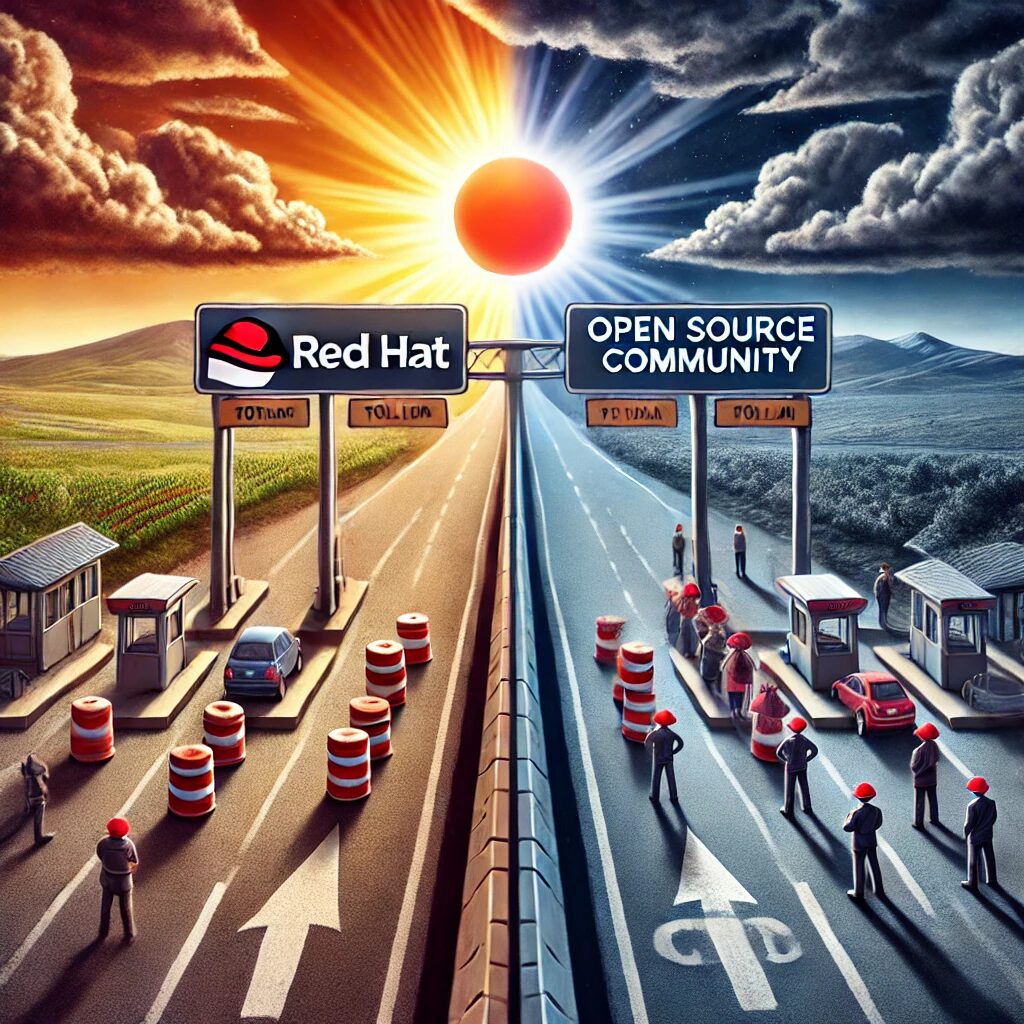Red Hat’s Move
Red Hat, once a paragon of open source and free software, has recently made decisions that many in the community view as a betrayal of the core principles that define open source. This shift not only undermines the spirit of collaboration and freedom but also jeopardizes the very foundation upon which Red Hat built its reputation.
Red Hat’s Controversial Shift
Red Hat’s decision to restrict access to the source code of Red Hat Enterprise Linux (RHEL) through its CentOS Stream initiative has raised eyebrows and ire within the open source community. Traditionally, Red Hat’s success was largely due to its commitment to sharing its software with the world. The introduction of CentOS, a free and open-source alternative to RHEL, played a crucial role in this ecosystem, providing a no-cost option that adhered to the same principles of freedom and accessibility.
However, the transformation of CentOS into CentOS Stream—a rolling-release model that serves as a precursor to RHEL rather than a downstream copy—signifies a strategic shift. This change limits the community’s ability to access a stable and free version of RHEL, effectively locking the enterprise-grade stability behind a paywall. For many, this move is seen as prioritizing profits over principles.
The Spirit of Open Source
The open source movement is built on the ethos of transparency, collaboration, and shared knowledge. When software is open source, anyone can inspect, modify, and enhance the code. This model fosters innovation and security, as more eyes on the code mean more opportunities to identify and fix vulnerabilities, and more contributors bring diverse ideas and improvements.
Red Hat, by restricting access to RHEL’s source code, is erecting barriers that contradict these principles. This action hinders independent developers, small businesses, and educational institutions that rely on open-source software for their operations and learning environments. It also sends a discouraging message to new contributors who might see open source as a gateway to equitable and accessible technology.
The Impact on the Community
The ripple effect of Red Hat’s decision extends far beyond the immediate loss of a freely available enterprise-grade Linux distribution. It undermines trust within the community. Contributors who have dedicated their time and effort to improve Red Hat’s offerings may feel alienated, seeing their contributions now behind a paywall. This move also sets a concerning precedent for other companies that might follow suit, leading to a fragmented and closed-off ecosystem where only those who can afford it can access high-quality software.
Upholding the True Spirit of Open Source
For the open-source movement to thrive, it must remain true to its roots. Companies that have benefited from open source have a responsibility to give back to the community that supported their growth. Red Hat’s recent actions challenge this reciprocal relationship.
As advocates for open source, we must continue to champion transparency and collaboration. Supporting truly open alternatives, contributing to projects that uphold these values, and raising awareness about the importance of accessible software are essential steps. By doing so, we can ensure that the spirit of open source remains vibrant and that its benefits continue to reach everyone, not just those who can pay for it.
In conclusion, Red Hat’s recent decisions represent a significant departure from the principles of open source. It’s a reminder of the ongoing struggle to maintain the integrity of the movement in the face of commercial pressures. Let’s reaffirm our commitment to openness and work together to keep the flame of free software burning bright.




